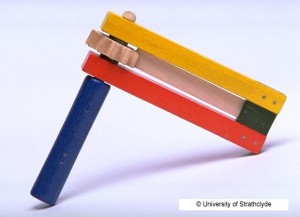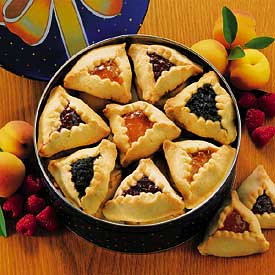The celebration of Purim is a Jewish festival that remembers the deliverance the Jewish people experienced while under the Persian domination predicted in Daniel 2:39, 7:5, and 8:3 20. The Jewish people had been taken into captivity by the Babylonians who were in turn conquered by the Medo-Persians. While all were free to return to the Land of Israel, only a small remnant actually went back to rebuild Jerusalem and the Temple. The majority of Jewish people settled down in the comfort and relative security of the Persian Empire. This secure and comfortable disobedience was soon to be shattered by anti- Semitism.
The events that led up to the celebration of Purim are recorded in the Book of Esther. The wicked anti-Semite, Haman, is promoted to the position of Prime Minister of the Persian Empire. He uses his position of power and authority to promote genocide against the Jewish people. Being a superstitious idol worshipper, Haman casts lots [pur (singular), purim (plural)] to determine the most advantageous time to begin his holocaust.
However, God remains faithful to His covenant with Abraham. God preserves the nation from destruction and puts an end to Haman using a loyal Jew, Mordecai, and his cousin Esther. As a result, the celebration of Purim is established to remind the Jewish people of His faithfulness to the nation—even when they were living in disobedience.

A Grager
www.strath.ac.uk
The festival is primarily celebrated in the synagogue today through the reading of The Megillah—the Book of Esther. However, there is a twist. Whenever Haman’s name is mentioned, the congregation rattles noisemakers (gragers—see illustration) and breaks into catcalls, boos and Bronx cheers. Whenever Mordecai or Esther’s name is mentioned, the congregation applauds and cheers. Needless to say, the reading of The Megillah is a joyous time.
The rabbis commanded that the celebration is a time to eat, drink, and be merry. Consequently, gifts of food and drink are exchanged, and gifts are given to charity. A traditional, three cornered cookie is baked called Hamentashen. (See illustration.) Toward the end of the Purim day, a festive meal is served called Seudat Purim and, of course, traditional songs are sung. Kreplach, a pastry filled with meat or chicken, is also served during Purim.
It is also customary to hold carnival like celebrations. Consequently, the synagogue service becomes a group masquerade party. In addition, Purim Spiels (Purim plays and parodies) delight young and old alike.
Use this opportunity to wish your Jewish friends a happy and joyful Purim. Ask them if they celebrate Purim in their home or synagogue. Tell them that you would love to taste Hamentashen and Kreplach. Join them in the celebration if you can and have fun.
More than having fun, be prepared to teach them about the One who loves the Jewish people and who has a covenant stake in their survival and welfare. He who delivered Israel from the anti Semitic Haman will deliver His people from the multitude of anti Semites threatening Israel and the Jewish people today (even in the comfortable and secure United States).
Beyond physical deliverance, be ready to tell your Jewish friends about the One who can deliver them from a fate worse than physical destruction. Tell them about Yeshua, the Jewish Messiah, the One who delivers from eternal, spiritual destruction. Tell them about the One who holds out the promise of ultimate joy and celebration. For this, take them to Psalm 16:10-11, a Messianic Psalm fulfilled in Acts 13:35.
- Ps 16:10-11 (NASB95)
For You will not abandon my soul to Sheol; Nor will You allow Your Holy One to undergo decay. You will make known to me the path of life; In Your presence is fullness of joy; In Your right hand there are pleasures forever.


